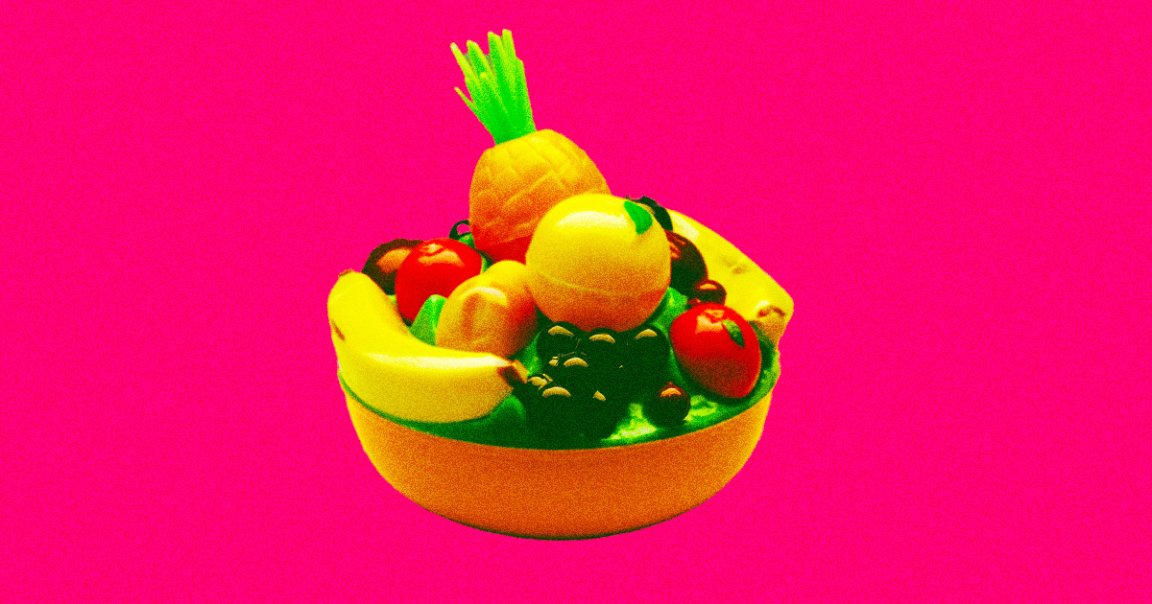
A new investigation from Consumer Reports has found plastics in “almost every food” it tested, affirming that these chemicals remain “widespread” in what we eat despite the risks they pose to our health.
The chemical phthalate, a type of “plasticizer” used in plastic manufacturing that makes the material more flexible and durable, was found in all but one of the 85 common food items tested. Bisphenol A, another chemical used in plastic manufacturing, was found in 79 percent of the samples.
Technically, none of the levels found exceeded the acceptable limits set by American and European regulators. But, as CR argues, that’s just one reason why the likes of the US Food and Drug Administration is sorely behind what the science says on how dangerous these chemicals — phthalates especially, given their ubiquity — can be.
It notes that there’s no confirmed safe level of phthalates, and a broad body of studies have linked them to asthma, diabetes, reproductive issues, and hormonal problems, even at levels “well below” the limits set by regulators.
“Many of these thresholds do not reflect the most current scientific knowledge, and may not protect against all the potential health effects,” Tunde Akinleye, a chemist at CR who oversaw the testing, said in a statement. “We don’t feel comfortable saying these levels are okay. They’re not.”
The investigation tested 67 foods bought at supermarkets, as well as a selection of 18 fast foods from popular chains. No one type of food appears to be more plastic-prone than others, and the levels vary drastically even among the same type of foods, brands, and packaging.
Notable store-bought products include Gerber’s baby foods, Yoplait yogurts, and Cheerios cereals. The worst culprit out of them all was Annie’s Homegrown Cheesy Ravioli, an “organic” canned meal that turned out to harbor more than 53,000 nanograms of phthalates per serving.
Among fast food, Wendy’s Crispy Chicken Nuggets topped the category with nearly 34,000 nanograms. Competitors like McDonald’s and Burger King were also found to have notably high levels.
Illustrating just how variable the levels can be, another Wendy’s item, the Dave’s Single Hamburger, was towards the bottom of fast foods, with only a tenth of the nuggets’ levels, with McDonald’s own offering of chicken McNuggets also significantly lower than Wendy’s.
“That tells us that, as widespread as these chemicals are, there are ways to reduce how much is in our foods,” James Rogers, who oversees CR’s product safety testing, said in the statement.
The organization’s scientists say that a reassessment by the FDA and other regulators is “overdue and essential.” But keeping these plastics out of our food won’t be easy. If they aren’t introduced by our food’s plastic packaging, once the focus of phthalate regulation, the chemicals can be introduced by the gloves and conveyor belts used in food processing, CR said.
And of course, there’s potentially our plastic choked environment at large to contend with. As more research reveals the sheer ubiquity of microplastics that are being found in everywhere from our bloodstreams to clouds, the fight to shield ourselves from their harmful effects becomes all the more daunting. But, in CR’s opinion, keeping phthalates out of our food “should be possible.”
More on food: Uber Eats Mocked for Grotesque AI-Generated Food Pictures on Menu